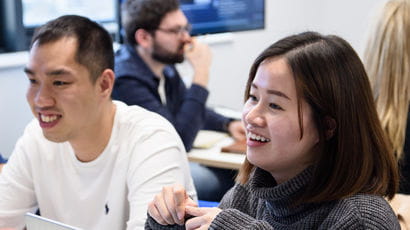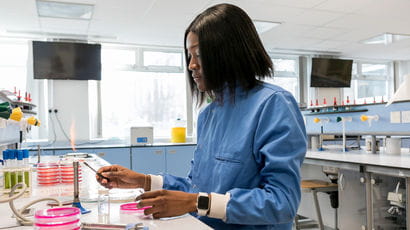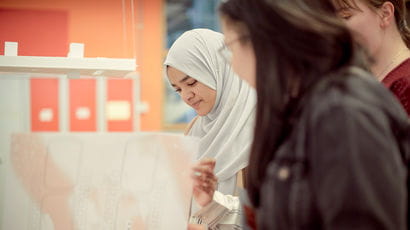Innovation in rapid diagnostics and therapeutic management for wound care
Development and application of ‘multi-species’ wound biofilm models
Introduction
An opportunity to apply for a funded full-time PhD in the Faculty of Health and Applied Sciences, UWE Bristol. The studentship will be funded by by the UWE Dean’s Society, Science and Health PhD competition 2021: Ref 2021-JAN-HAS04.
The expected start date of this studentship is 1 January 2022.
The closing date for applications is Sunday 5 September 2021.
About the studentship
This PhD will fuse advanced knowledge discovery with world leading clinical practice, aiming to improve healthcare and patient outcomes. This is a collaborative PhD opportunity supervised by Dr Robin Thorn (UWE Bristol), Professor Darren Reynolds (UWE Bristol) and Dr Amber Young (University Hospitals Bristol NHS Foundation Trust), focused on improving the diagnosis and management of wound infection through the discovery and application of key biofilm biomarkers of microbial processes linked to infection events.
Background
Annually, more than 76 million people worldwide suffer from wounds, whereby the patient care cost of an unhealed wound is significantly greater than that of a healed wound. Disruption to wound healing is primarily due to infection, and remains the leading cause of decreased patient quality of life and increased healthcare costs. Non-invasive point-of-care strategies to improve the accuracy of infection diagnosis and rate of wound healing are required.
Biofilms are now known to disrupt normal wound healing within both acute and chronic wounds. The detection and characterisation of wound biofilms throughout the infection process is vital to provide rapid diagnostics that are capable of detecting infection, and assessing the requirement/effectiveness of medical interventions (e.g. antibiotic use). Currently, medical practitioners evaluate wound-status through visual inspection based on experience (and non-specific laboratory blood tests), resulting in 30% of wounds lacking an accurate diagnosis and 85% of dressings being changed too often and too early, hampering healing. This existing approach is wastefully expensive, hospital-based, excessively time-consuming (for patients and clinicians), likely to produce inaccurate diagnoses, delays healing and risks hospital-acquired infection. Currently there are no diagnostic approaches to detect biofilms facilitating rapid diagnosis of clinical wound infection.
Project overview
This PhD project aims to develop state-of-the-art ‘multi-species’ wound biofilm models that are more representative of the clinical situation in vivo, in partnership with a world-leading clinical wound care team, led by Dr Amber Young. The project builds on a regional strategic partnership between the Centre for Research in Biosciences (UWE Bristol) and the Bristol-based NHS Burns Research centre to solve real-world problems in wound care. There are no diagnostic approaches to detect biofilms facilitating rapid diagnosis of clinical wound infection, therefore a solutions-based approach will advance knowledge in both fundamental science (microbial metabolomics) and applied research (diagnostics) capable of real-world impact in a clinical setting.
The key research objectives are:
- develop a ‘multi-species’ biofilm model more representative of the clinical situation in vivo
- identify species-specific volatile biomarkers within ‘multi-species’ biofilms to enable (a) rapid wound care diagnostics and (b) monitoring of therapeutic treatment progression
- investigate current clinical treatment strategies against multispecies biofilms advancing clinical knowledge of polymicrobial infections within both acute and chronic wounds. This will help inform wound care management where biofilms are known to be involved.
The project will also involve three short secondments (COVID-19 dependent) into the NHS Burns Research Centre (Bristol) to learn from world leading experts as to how wounds are investigated and managed in the clinic. This experience will be essential to the professional development of the PhD candidate.
For an informal discussion about the studentship, please email Dr Robin Thorn (Robin2.Thorn@uwe.ac.uk).
Funding
The studentship is available from the Faculty of Health and Applied Sciences for a period of three years, subject to satisfactory progress and includes a tax exempt stipend, which is currently £15,609 per annum.
In addition, full-time tuition fees will be covered for up to three years.
Eligibility
Applicants must have a BSc (2:1 or above) or equivalent degree in a biological or biomedical sciences discipline, including but not limited to Microbiology, Cell Biology, Molecular Biology.
Experience of applied microbiology laboratory techniques (e.g. biofilm culture, metabolomics and/or antimicrobial research) is desirable but not essential, as training will provided within the PhD programme.
A recognised English language qualification is required.
How to apply
Please submit your application online. When prompted, use the reference number 2022-JAN-HAS04. Applications which do not include a studentship reference number cannot be considered for shortlisting.
Supporting documentation: you will need to upload your research proposal, all your degree certificates and transcripts and your proof of English language proficiency as attachments to your application, so please have these available when you complete the application form. Applications which are incomplete at the application deadline will not be considered for shortlisting.
References: you will need to provide details of two referees as part of your application. At least one referee must be an academic referee from the institution that conferred your highest degree. Your referee will be asked for a reference at the time you submit your application, so please ensure that your nominated referees are willing and able to provide references within 14 days of your application being submitted.
Closing date
The closing date for applications is Sunday 5 September 2021.
Further information
Interviews will take place on Friday 29 October 2021. If you have not heard from us by that date, we thank you for your application but, on this occasion, you have not been successful.
You may also be interested in

Contact the Doctoral Academy
Ways to contact the Doctoral Academy, from postgraduate research support to submitting your thesis.

Fees and funding
View Doctoral Academy tuition fees, project fees, completion fees and resubmission fees.

About the Doctoral Academy
Find out more about the UWE Bristol Doctoral Academy.

Research
Discover how research at UWE Bristol is making a real impact.
